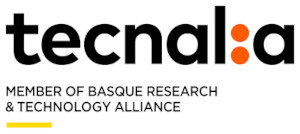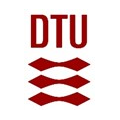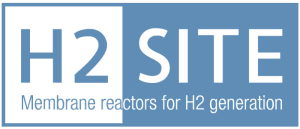Partners
The ARENHA consortium gathers 11 organisations from 7 countries (Netherlands, Denmark, Germany, Estonia, France, United Kingdom and Spain). The consortium has been set-up in order to form a new complete Ammonia supply chain from European resources: i) Energy and Transport key players: ENGIE being the number one independent power producer in the world and PSA ID, part of Groupe-PSA, number 2 Europe’s vehicle manufacturer; ii) 3 Hi-tech SMEs, ELCOGEN, Proton Ventures (PV) and HYDROGEN 2 SITE (H2SITE), focused on innovative solutions for hydrogen generation through Solid Oxide Cells, decentralized ammonia production and membrane reactors for hydrogen production and purification, respectively; iii) 5 Top European Research centers (TECNALIA, FhG-IKTS, DTU, STFC and TUE), all with a strong record of research and innovation covering the field of materials, electrolysers, reactors, process design in the ammonia value chain; and iv) Other key organisation such as CNH2 with extensive expertise around hydrogen value chain.
In ARENHA, the total industrial participation is around 45% of the consortium, while innovative SMEs represent 27% of the participants.
Fundación Tecnalia R&I
Fundación TECNALIA Research and Innovation is the largest private non-profit applied research center in Spain and the fifth in Europe, employing more than 1,400 people (248 PhD) and with income of 110 Million € in 2018.
Eindhoven University of Technology
Eindhoven University of Technology (TU/e) is a research university specializing in engineering science & technology. Our education, research and knowledge valorization contribute to:
- science for society: solving the major societal issues and boosting prosperity and welfare by focusing on the Strategic Areas of Energy, Health and Smart Mobility.
- science for industry: the development of technological innovation in cooperation with industry.
- science for science: progress in engineering sciences through excellence in key research cores and innovation in education.
Centro Nacional de Experimentación de Tecnologías de Hidrogeno y Pilas de Combustible Consorcio
The Spanish National Hydrogen Centre (CNH2) is a National Research Centre devoted into research and development of hydrogen technologies covering the whole cycle: hydrogen production, hydrogen storage and purification, and hydrogen conversion into energy using fuel cells.
Technical University of Denmark
The Technical University of Denmark (DTU) is one of Europe’s foremost technical universities with more than 6000 staff employed, 2200 researchers and educators, 2600 employees in central support functions and about 1200 PhD fellows. About 12000 students are enrolled from BEng. to MSc Eng. DTU develops and creates value using the natural sciences and the technical sciences to benefit society. The university has a strong innovation culture with over 70 start-ups generated in 2018, and DTU holds over 600 patents, more than any other university in Denmark.
Fraunhofer-Gesellschaft zur Förderung der angewandten Forschung e.V
The Fraunhofer Institute of Ceramic Technologies and Systems (IKTS), as one institute of the Fraunhofer Society, covers the complete field of ceramics from the basic material research to the application and system integration. The three core competences of Fraunhofer IKTS are material know-how, technology and production process development and quality assurance in manufacturing. IKTS has an excellent network of industrial and R&D partners worldwide.
United Kingdom Research and Innovation
The Science and Technology Facilities Council (STFC) is one of 9 research councils that make up UK Research and Innovation, which itself sits under the UK government’s Department of Business, Energy and Industrial Strategy. STFC employs about 2000 staff across six sites in the UK and exists to develop advanced technologies for solving real-world challenges. STFC comprises many of the UK’s large research infrastructure including the central laser facility, the UK’s synchrotron (Diamond Light Source), the UK space programme and the UK’s spallation neutron and muon source (ISIS), which between them host several thousand scientific and industrial users per annum. These facilities are for the most part located at the Harwell Campus in Oxfordshire, which also hosts the EnergyTec cluster—35 organisations focused on bringing their capabilities to address national and global energy challenges.
Proton Ventures BV
Proton Ventures BV originally started in 2001 in Brielle (the Netherlands). In 2011 we moved our office to Schiedam (the Netherlands) within close proximity to the industries in the Port of Rotterdam. We are an ISO 9001:2015 certified company having a team of 20 enthusiastic professionals who can develop, design and implement customized solutions for our customers.
Elcogen AS
Elcogen was founded in 2001 and has since then been working closely together with two leading Estonian research institutions: The Institute of Physical Chemistry of the University of Tartu and the National Institute of Chemical Physics and Biophysics in Tallinn. In order to reach a competitive product, new materials and processes have been developed through applied research. In recent years, Elcogen has used an international network in product development, cooperating with Polymer Innovations (the U.S.), ECN (the Netherlands), Erlangen University (Germany), HaikuTech (the Netherlands), Helsinki University, Picosun (both Finland) etc. Elcogen’s solid oxide cells have been repeatedly tested by VTT, an independent research institution in Finland, who estimates that Elcogen’s cells are the best on the market.
Hydrogen Onsite, S.L.
H2Site is a recently established spinoff company based in Bilbao (Spain) created from a joint venture between Tecnalia (Spain) and TU/Eindhoven (The Netherlands) after more than 10 years of technology development and, since 2020, it is also partly own by Engie (France). H2Site core business is on the gas processing and, particularly, focused on the development of on-site H2 generation systems based on advanced membrane reactors and membrane purification systems.
PSA Innovation and Design
PSA Innovation and Design, affiliated to Stellantis, is a company dedicated to Studies, Research, Innovation and Conception in Automotive field as well as Style and Design activities. PSA ID has gained expertise in the field of optimization strategies to quickly design and size a new powertrain from a blank page, in order to save time in the advance phase and before the development phase. For such, PSA ID relies on an Open Innovation approach, which connects a broad scope of partners such as universities, research laboratories, companies both large and small, start-ups and incubators, and individuals by creating and generating the Stellantis’s OpenLabs network.
 Created in 2011, the OpenLab ‘Energetics’, a joint lab with University of Orléans (Laboratoire PRISME) provides a shared scientific vision of alternative energy and innovative powertrains to identify disruptive innovations to reach zero carbon footprint target, sign international partnerships and also to train talented young engineers and researchers. For ARENHA project, University of Orléans will operate as third party in the Open Lab context.
Created in 2011, the OpenLab ‘Energetics’, a joint lab with University of Orléans (Laboratoire PRISME) provides a shared scientific vision of alternative energy and innovative powertrains to identify disruptive innovations to reach zero carbon footprint target, sign international partnerships and also to train talented young engineers and researchers. For ARENHA project, University of Orléans will operate as third party in the Open Lab context.
ENGIE
ENGIE is a major energy utility company (approximately 150 000 employees worldwide) providing highly efficient and innovative energy and services solutions to residential, commercial and industrial customers. Willing to take a lead within the Energy Transition in Europe, ENGIE is highly involved in the development of sustainable and renewable energies from their production to their uses in cities and territories. In this context, ENGIE consider hydrogen as a promising energy carrier, that may on one hand provide a huge flexibility to energy system in order to optimize renewables integration, and on the other hand, support the development of efficient and green energy uses at centralized or decentralized level. Within the ENGIE company, ENGIE Lab CRIGEN, corporate R&D center of ENGIE is dedicated to new gases and energies. ENGIE Lab CRIGEN conducts operational R&D projects and develops pilots for the Business Units, corporate entities of ENGIE and external customers, in an effort to master tomorrow’s technologies, bring them to maturity, and prepare the Energy Transition.











